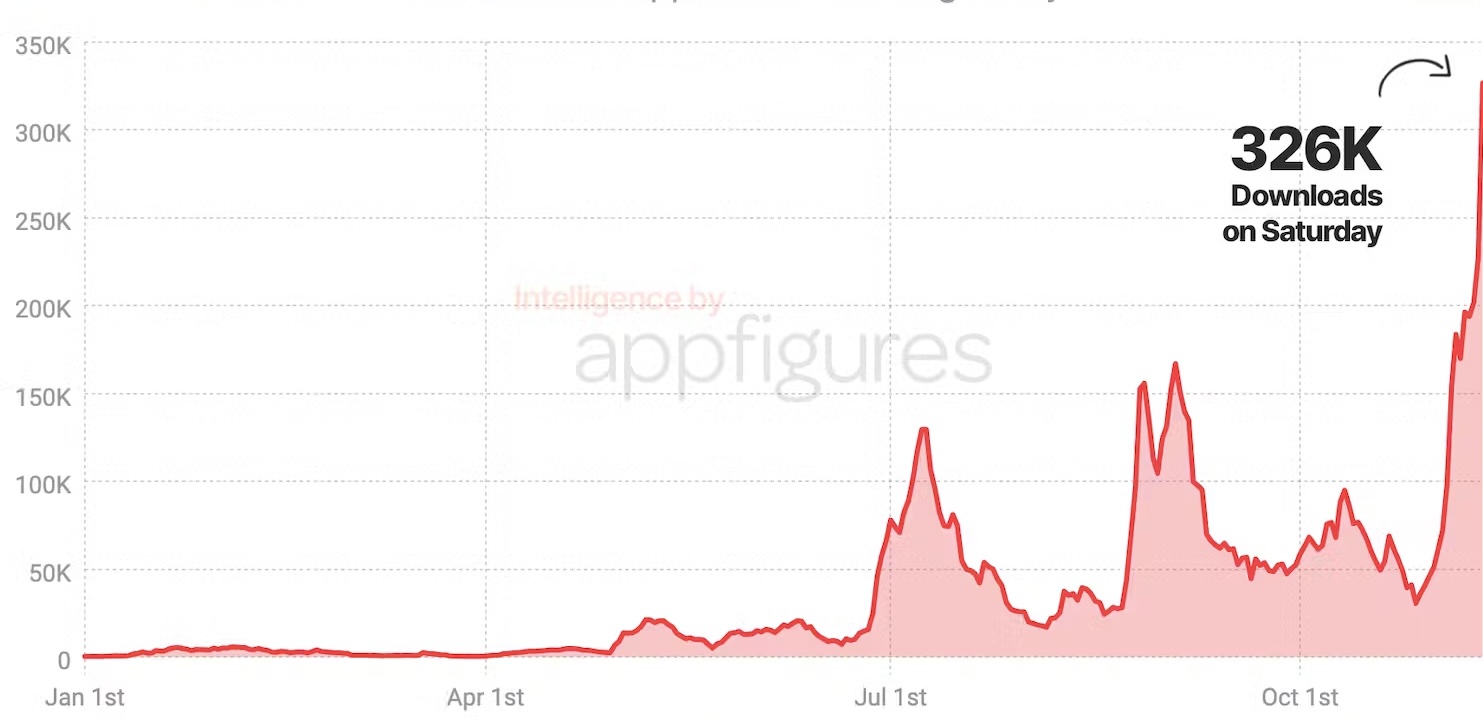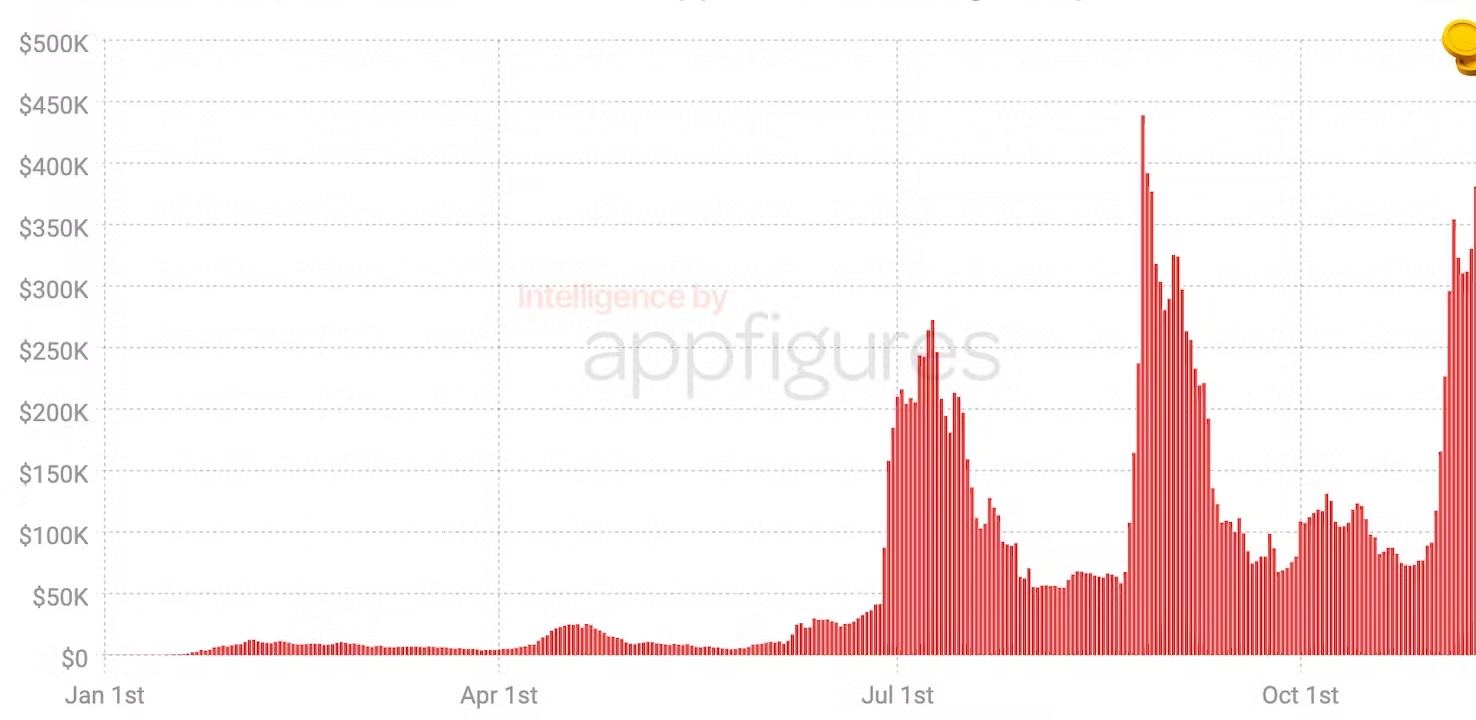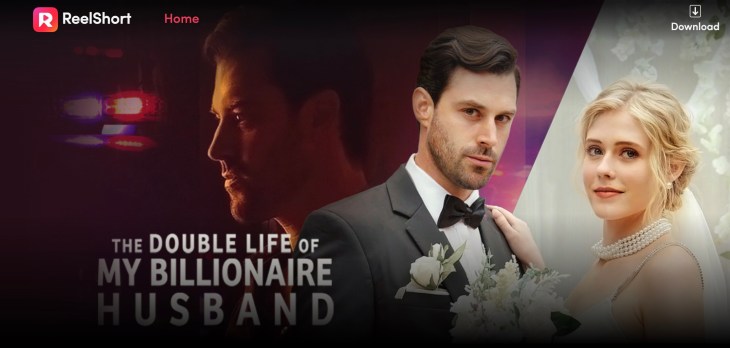Was Quibi a failure or just before its time? This month, a short-video app and Quibi-like entertainment service called ReelShort found its way to the top of the App Store, which led to the app gaining 1.9 million downloads (so far) in the month of November alone. Last Saturday, the app also hit a daily record in terms of both downloads and revenue, with 326,000 new installs and $459,000 in net revenue — the latter meaning the revenue it retained after paying app store fees.
This data, provided by market intelligence firm Appfigures, raises the question as to whether there’s a continued consumer appetite for short-form, produced entertainment, similar to what the failed startup Quibi once offered, or if ReelShort’s time at the top of the charts is more of a fluke — or perhaps one helped by heavy app marketing ad spend.

Image Credits: Appfigures
The company, Sunnyvale-based Crazy Maple Studio, didn’t respond to press inquiries about its app’s newfound success, but the studio’s other mobile products include animated interactive story apps, fiction apps and storytelling apps. ReelShort fits into that large portfolio as it features short, “bite-sized” shows with real actors, and uses a virtual currency to unlock further episodes. Users can watch ads to earn coins or they can buy them directly in the app.
As a result of this model, the app has been downloaded 11 million times across iOS and Android and has generated $22 million in net revenue to date since its August 2022 launch. This month, ReelShort even spent a couple of days as the No. 2 app in the U.S. and made it as high as No. 1 in the Entertainment category for around four days.
What’s more impressive about this is that ReelShort’s video content itself is arguably worse than Quibi’s — and Quibi’s was not always great. The acting and writing in ReelShort are so bad that you almost have to wonder if it’s intentional at times. The stories themselves are like snippets from low-quality soaps — or as if those mobile storytelling games came to life. But, regardless, the app has found a bit of an audience, its revenue indicates.
On average, ReelShort generates roughly $2 per download, Appfigures says. That’s more than Quibi’s estimated $0.73 per download, though that comparison doesn’t consider inflation.
Quibi claimed its shutdown was due to the app’s launch timing — it was meant to be an on-the-go app but ended up arriving amid a pandemic when everyone was staying at home. However, the app also failed to capitalize on what made social video successful, instead relying on Hollywood writers and personalities to create dumbed-down content that was often boring or just odd. ReelShort doesn’t exactly upend this model with quality content cut down to snippet size. Instead, it has been running thousands of ads on Meta’s platforms to showcase its soap opera-like stories.
This month, Meta counts around 8,100 ads in the U.S., which could help to explain the boost in installs and revenue. The app also ran an Apple Search Ads campaign recently, Appfigures notes. Its downloads started to drop, likely right after the campaign ended, and revenue then followed.

Image Credits: Appfigures
The question now is whether or not these new users who have discovered ReelShort will stick around for a Quibi redux.
After all, the ReelShort’s competition, much like Quibi’s, continues to be TikTok — a platform with engaging short-form video that also includes film snippets from higher-quality sources. TikTok users will often find themselves watching back-to-back snippets that pull highlights from popular films to watch a two-hour long movie cut down to something like 10 minutes’ worth of content. Despite the copyright infringement claims that lead to many takedowns of this sort of content, it continues to pervade the app. Paramount eventually embraced the trend by releasing “Mean Girls” last month in 23 snippets on TikTok (at least for a limited time).
ReelShort today has mixed reviews, with many users complaining about the virtual currency and the ads model. Some say they’d rather pay for a subscription, or at least think ads should be more limited. Many reviews claim the content is entertaining or even “great,” which seems like a stretch. But the app continues to be ranked as the No. 3 Entertainment app in the U.S. for the time being, which suggests there is consumer demand for something like this.
